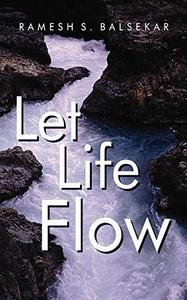
Let Life Flow By Ramesh S. Balsekar
2009 | 100 Pages | ISBN: 8188479160 | PDF | 1 MB
Change, unceasing change which is the very basis of life and living, is what Let Life Flow is all about. Ramesh says that life is like a deep river, flowing incessantly, whereas the day-to-day living for most people is a preference for the security and stagnancy of the little pools beside the river. What happens in life is that the challenge is always new, but our response is old because it is formed on the past, which is memory. Experiencing with memory is one state, but experiencing without memory is altogether different. A new thought, an inspiration can happen only when the mind is not caught in the net of memory. It is only when the mind is still, tranquil, not seeking any solution, any answer, neither resisting nor avoiding, that it is capable of receiving what is true, that which is eternal, timeless, immeasurable. You cannot go to it, it comes to you; what liberates is the truth, not your effort to be free. Ramesh uses the river as an apt metaphor for his concept that no one is a doer but, rather, all actions are happenings ordained by the One Source, who some refer to as God. To perceive ourselves as the doers is like the river thinking that it is pushing itself onwards to the sea, or the sea thinking that the tides are its own doing - totally oblivious of the fact that is the gravitational force of the moon that is responsible for their ebb and flow. To let life flow, in general terms, means that we should go about our daily routine with a relaxed attitude, based on the total basic understanding that nothing at all can happen unless it is supposed to happen according to one's destiny, according to the Cosmic Law.
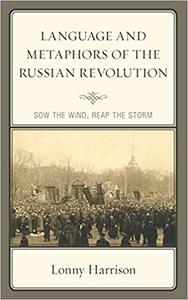
Lonny Harrison, "Language and Metaphors of the Russian Revolution: Sow the Wind, Reap the Storm "
English | ISBN: 149859798X | 2020 | 270 pages | PDF | 4 MB
[center]

Kitchen Witchery: Unlocking the Magick in Everyday Ingredients by Laurel Woodward
English | August 8th, 2021 | ISBN: 0738767840 | 360 pages | True EPUB | 2.50 MB
Transform Your Cooking into a Magickal Act of Healing, Manifesting, and Creating
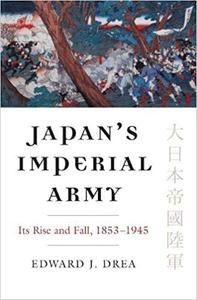
Edward J. Drea, "Japan's Imperial Army: Its Rise and Fall, 1853-1945 "
English | ISBN: 0700616632 | 2009 | 444 pages | PDF | 7 MB
Popular impressions of the imperial Japanese army still promote images of suicidal banzai charges and fanatical leaders blindly devoted to their emperor. Edward Drea looks well past those stereotypes to unfold the more complex story of how that army came to power and extended its influence at home and abroad to become one of the world's dominant fighting forces.
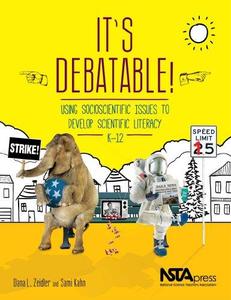
It's Debatable!: Using Socioscientific Issues to Develop Scientific Literacy, K-12 By Dana L. Zeidler
2014 | 304 Pages | ISBN: 1938946006 | PDF | 18 MB
This book encourages scientific literacy by showing you how to teach the understanding and thinking skills your students need to explore real-world questions like these: Should schools charge a tax to discourage kids from eating unhealthy foods?Should local governments lower speed limits to reduce traffic fatalities? Should pharmaceutical companies be allowed to advertise prescription drugs directly to consumers? At the core of the exploration is the Socioscientific Issues Framework. The framework gives students practice in the research, analysis, and argumentation necessary to grapple with difficult questions and build scientific literacy. After introducing the concept of the framework and explaining how it aligns with the Next Generation Science Standards, the book shows you how to implement it through seven units targeted to the elementary, middle, and high school levels. You even find out how to develop your own socioscientific issues curriculum.Both practical and content-rich, It's Debatable! doesn't shy away from controversy.Instead, the authors encourage you and your students to confront just how messy the questions raised by science (and pseudoscience) can be. After all, as the authors note, The only way for our students to be prepared for participation in societal discourse is to have practice in their school years, and what better place than the science classroom?
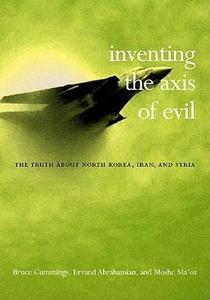
Inventing the Axis of Evil: The Truth About North Korea, Iran, and Syria By Bruce Cumings; Moshe Ma'oz; Ervand Abrahamian
2004 | 160 Pages | ISBN: 1565849043 | PDF | 4 MB
[center]
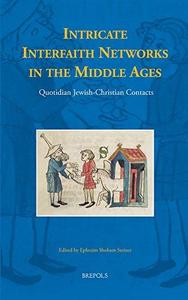
Intricate Interfaith Networks in the Middle Ages: Quotidian Jewish-Christian Contacts By Ephraim Shoham-Steiner
2016 | 364 Pages | ISBN: 2503544290 | PDF | 4 MB
[center]
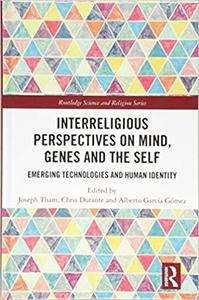
Joseph Tham, "Interreligious Perspectives on Mind, Genes and the Self: Emerging Technologies and Human Identity "
English | ISBN: 1138315753 | 2018 | 238 pages | PDF | 2 MB
Attitudes towards science, medicine and the body are all profoundly shaped by people's worldviews. When discussing issues of bioethics, religion often plays a major role. In this volume, the role of genetic manipulation and neurotechnology in shaping human identity is examined from multiple religious perspectives. This can help us to understand how religion might affect the impact of the initiatives such as the UNESCO Declaration in Bioethics and Human Rights.
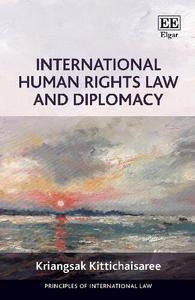
International Human Rights Law and Diplomacy by Kriangsak Kittichaisaree
English | Mar 2, 2020 | ISBN: 1839102187 | 360 pages | PDF | 6 MB
This incisive book provides an unparalleled insight into the ways in which international human rights law functions in a real world context across cultural, religious and geopolitical divides. Written by a professor, former ambassador and international judge, the book demonstrates how power, diplomacy, tactics and processes operate within the human rights system from the perspective of a non-Western insider with more than three decades' experience in the field.
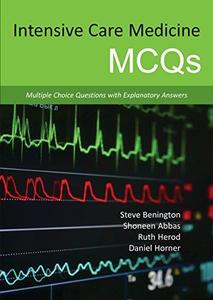
Intensive Care Medicine MCQs: Multiple Choice Questions with Explanatory Answers By Steve Benington; Shoneen Abbas; Ruth Herod; Daniel Horner
2015 | 300 Pages | ISBN: 1910079073 | PDF | 10 MB
[center]


